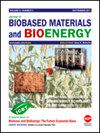Practical Effect of Cervical Softening Decoction Combined with Delivery Ball Approach in Promoting Vaginal Delivery in Primiparous Women
IF 0.5
4区 医学
引用次数: 0
Abstract
In Traditional Chinese Medicine, Cervical Softening Decoction is derived from a modified “Wan Bing Hui Chun” formulation and consists of natural herbal ingredients such as Angelica sinensis, Ligusticum chuanxiong, Leonurus heterophyllus, and Cortex Daphnes. The decoction regulates Qi, promotes blood circulation, and facilitates fetus descent. Genkwanin is an active compound in L. heterophyllus and previous studies identified this compound in ethanolic extracts from rat uterine smooth muscle cell membrane fractions. To further understand the pharmacological activities of Cervical Softening Decoction, we examined genkwanin effects on isolated rat uterine contractions and protein expression in rat tissue with postpartum hemorrhage complicated by multiple organ dysfunction syndrome (MODS). We also explored the practical effects of Cervical Softening Decoction combined with a birthing ball approach on promoting natural delivery in primiparous women. First, an isolated rat uterine smooth muscle contraction model was generated and three groups established: oxytocin group (0.002 U/mL), conventional genkwanin dose group (3 μg/mL), and high genkwanin dose group (6.0 μg/mL). Changes in uterine smooth muscle contraction and relaxation amplitudes were recorded before and after administration. Second, 50 rats were used to establish the following groups: (1) control group, (2) postpartum hemorrhage with MODS model group (MODS group), and (3) a postpartum hemorrhage with MODS treated with genkwanin group (genkwanin group). Western blotting was used to detect and compare tumor necrosis factor-α (TNF-α) and interleukin (IL)-6 protein expression levels in lung tissue from groups. Finally, 84 primiparous women admitted to our hospital between January 2020 and December 2021 were selected and divided into two groups based on their obstetric interventions. The control group (n = 42) received routine obstetric intervention, while the observation group (n = 42) received Cervical Softening Decoction and delivery ball interventions. Delivery conditions were compared across groups. In basic studies, genkwanin doses significantly increased contraction and relaxation values in isolated rat uterine smooth muscle (P <0.05). Moreover, the genkwanin contractile effects at conventional and high doses were comparable with oxytocin. TNF-α and IL-6 protein expression in MODS group lung tissue was significantly higher when compared with the control group, while expression in the genkwanin group was significantly reduced when compared with the MODS group (P <0.05). In clinical studies, the observation group showed significantly higher natural delivery rates and Labor Agentry Scale (LAS) scores when compared with the control group. In contrast, cesarean section rates, first and second stage labor duration, total labor duration, and Facial Pain Scale (FPS) scores were significantly lower in the observation group when compared with the control group (P <0.05). In basic studies, genkwanin elicited significant contraction effects on isolated rat uterine smooth muscle and effectively inhibited inflammatory responses in rats with postpartum hemorrhage complicated by MODS. In clinical studies, combined Cervical Softening Decoction and delivery ball generated promising practical effects in promoting vaginal delivery in primiparous women. The intervention significantly increased the probability of a natural delivery, shortened labor duration, relieved maternal pain, and enhanced maternal control during delivery.宫颈软化煎剂结合分娩球法促进初产妇阴道分娩的实际效果
在中医中,颈柔汤是由“万兵会春”配方改良而成,由当归、川芎、益母草、达芙妮等天然草药成分组成。该汤调气活血,促进胎儿下降。根管万素是一种有效化合物,已有研究在大鼠子宫平滑肌细胞膜的乙醇提取物中发现该化合物。为了进一步了解颈椎软化汤的药理作用,我们研究了根宽素对产后出血并发多器官功能障碍综合征(MODS)大鼠离体子宫收缩和组织蛋白表达的影响。我们还探讨了宫颈软化汤联合分娩球法促进初产妇自然分娩的实际效果。首先建立离体大鼠子宫平滑肌收缩模型,建立催产素组(0.002 U/mL)、根管万素常规剂量组(3 μg/mL)、根管万素高剂量组(6.0 μg/mL) 3组。记录给药前后子宫平滑肌收缩舒张幅度的变化。其次,选用50只大鼠,建立3组:(1)对照组,(2)产后出血MODS模型组(MODS组),(3)产后出血MODS治疗组(genkwanin组)。采用免疫印迹法检测各组肺组织中肿瘤坏死因子-α (TNF-α)和白细胞介素(IL)-6蛋白的表达水平并进行比较。最后,选择2020年1月至2021年12月期间入住我院的84名孕妇,并根据产科干预措施分为两组。对照组(n = 42)给予常规产科干预,观察组(n = 42)给予宫颈软化汤和分娩球干预。各组间比较分娩情况。在基础研究中,根宽万素剂量显著增加离体大鼠子宫平滑肌收缩舒张值(P <0.05)。此外,在常规剂量和高剂量下,根管万素的收缩作用与催产素相当。MODS组肺组织中TNF-α、IL-6蛋白表达量较对照组显著升高,根管万素组肺组织中TNF-α、IL-6蛋白表达量较MODS组显著降低(P <0.05)。在临床研究中,观察组的自然分娩率和分娩代理量表(LAS)评分均明显高于对照组。观察组剖宫产率、第一、第二产程、总产程、面部疼痛量表(FPS)评分均显著低于对照组(P <0.05)。在基础研究中,根宽万素对离体大鼠子宫平滑肌有明显的收缩作用,并能有效抑制产后出血合并MODS大鼠的炎症反应。在临床研究中,宫颈软化汤联合分娩球在促进初产妇阴道分娩方面取得了很好的实际效果。干预显著提高了自然分娩的概率,缩短了分娩时间,缓解了产妇疼痛,增强了产妇对分娩的控制。
本文章由计算机程序翻译,如有差异,请以英文原文为准。
求助全文
约1分钟内获得全文
求助全文

 求助内容:
求助内容: 应助结果提醒方式:
应助结果提醒方式:


